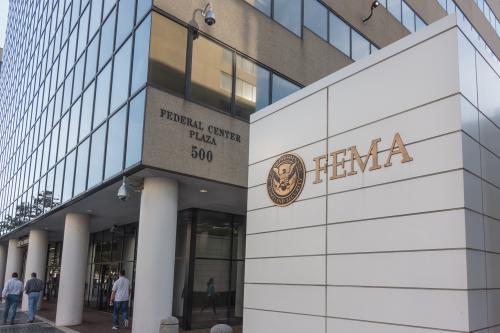A battle is brewing on Capitol Hill over “fast track.” The president wants authority to negotiate new trade agreements, subject only to up or down votes in the House and Senate. Some Democrats and Republicans aren’t on board.
Regardless of one’s views on trade issues, fast-track authority should be renewed. And Congress shouldn’t stop there. Fast track should be extended to a host of other issues now deadlocked in Congress.
Fast track was first applied to trade issues in 1974, but it has a lineage reaching back at least as far as the 1930s, when FDR sought authority to reorganize a slew of federal agencies. Since then, fast track has been used on a wide range of issues. Expedited procedures barring amendments and filibusters have been written into statutes as diverse as the war powers and budget acts, and as recent as the line-item veto law.
In all the talk about free trade, we have lost sight of the institutional side of the fast-track coin. Even if we disagree about the particulars of trade matters, fast track has important institutional benefits. It has proved an essential tool for fostering negotiation and protecting policy compromise. Under expedited procedures, power is delegated to the president but ultimately reserved for the Congress. After a trade agreement is reached under fast track, the administration and congressional committees typically negotiate the final implementing language together before the pact is formally submitted to Congress. Only then does the fast-track clock begin to tick.
True, fast track strengthens presidents’ autonomy from Congress, but they are ultimately constrained by the need to garner majorities in the House and Senate. Fast track focuses the institutional power of Congress instead of frittering it away by endless amendment and filibustering delay.
Fast track has a record of success. Fast-track consideration of military base closing packages solved a long standoff between advocates of streamlining military resources and members of Congress seeking to protect jobs at home. Protecting budget reconciliation bills from filibusters and unrelated rider amendments has proved critical to fostering compromise on spending and taxing priorities.
Fast-track opponents often argue that such procedures violate the traditions of the Senate, where few limits have ever been placed on the right to debate and amend legislation endlessly. Such arguments are little more than red herrings, since senators’ positions on fast-track procedures typically turn on pragmatic (and legitimate) political and policy considerations. Even Sen. Robert Byrd (D-W.Va.), the fiercest defender of the Senate and its traditions, has turned to fast-track procedures when they have advanced his policy goals and the interests of the Senate. Barring filibusters and setting a time certain for final votes, expedited procedures have proved invaluable for taming the unpredictability of the Senate.
Congress should debate and craft fast-track legislation for future global trade talks, taking into account concerns about labor and environmental protection and other pressing trade matters. And it should consider expedited rules for other gridlocked issues as well. Campaign finance reforms could be negotiated by a bipartisan group and then brought to the floor under fast-track rules. Granting fast-track protection to presidential nominations so that nominees are guaranteed an up or down vote also should be considered. Such provisions would have loosened the iron grip of one Republican senator over the fate of ambassador nominee William Weld.
Fast track has been one of the most successful procedural innovations invented by Congress this century. It guards against obstruction and delay while encouraging hard bargaining and fair compromise—ingredients for breaking deadlock in Washington.



Commentary
Op-ed‘Fast Track’ Benefits More Than Trade: It Keeps Congress Focused
November 3, 1997